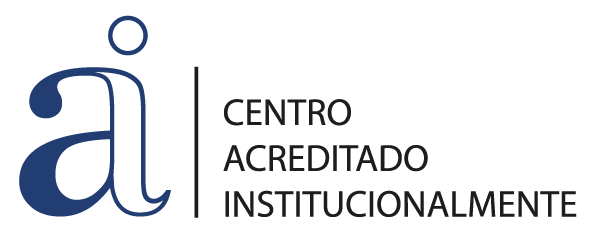Seminario INMA-Impulso: Investigadores Ramón y Cajal del INMA.- Martes 18 de junio
El próximo martes 18 de junio de 2024 a las 12:00 horas tendrá lugar una nueva sesión del ciclo de conferencias INMA-Impulso, un ciclo de conferencias que trata de acercar la investigación más puntera a la sociedad.
Durante la próxima sesión contaremos con las presentaciones de dos investigadores Ramón y Cajal en el Instituto de Nanociencia y Materiales de Aragón, INMA, instituto mixto del CSIC y la Universidad de Zaragoza: Beatriz Zornoza y Alberto Concellón.
Beatriz Zornoza: Towards high-performance membranes for sustainable energy and environmental remediation
Resumen (en inglés):
The climate change that the planet is experiencing leads to the urgent need to reduce greenhouse gas emissions, mainly CO2, into the atmosphere. Decarbonizing the energy system of transport, buildings, and industry (specifically energy-intensive chemical, cement, or steel industries) is crucial to reaching the environmental, energy, and climate objectives for 2030 and for Europe to become carbon neutral by 2050. Aiming to address these pressing goals my research has focused on the progress of Membrane Technology. Membranes, with low carbon footprint, and easy operation and scaling are a key technology in the separation processes for efficient and environmentally friendly energy generation. Polymer membranes are already commercial but are relatively low-selective, showing a trade-off between permeability and selectivity. These two parameters can be highly enhanced by incorporating advanced nanotechnological materials, such as metal-organic frameworks (MOF), which allow to extract their potential as molecular sieves and adsorbents forming the known mixed-matrix membranes (MMM). Currently, to reduce the high fabrication costs of these novel membranes, the investigation is directed toward the fabrication of ultra-thin films. In this talk, we will take a tour of different membrane preparation methodologies for efficient energy production and environmental sustainability.
Dr. Beatriz Zornoza obtained her PhD in Chemical Engineering at the University of Zaragoza (2011, FPU program, and extraordinary doctorate award) under the supervision of Profs. Carlos Téllez and Joaquín Coronas. Her research career has been developed at the University of Zaragoza (working on several European and National projects) but she was away for more than 4 years, both at Instituto de Carboquímica (CSIC) within her “Juan de la Cierva-Incorporación” fellowship, and as an international visiting researcher at Technical University of Denmark (Denmark), Georgia Institute of Technology (Atlanta, United States), Technical University of Delft (The Netherlands) and University of Montpellier (France). In 2024, she started her “Ramón y Cajal” contract at INMA in the “Membranes and Catalysis with Nanostructured Materials Group” (MECANOS) to progress on Membrane Technology to ensure efficient and environmentally friendly energy production by developing advanced nanotechnological materials.
Dr. Alberto Concellón: The New Role of Liquid Crystals: Disruptive Innovations in Energy, Sensing, Optics, and Healthcare
Resumen (en inglés):
Liquid crystals (LCs) are fascinating soft materials that combine molecular order and mobility. Since their discovery by Reinitzer in 1888, LCs have been studied for over 130 years across multiple disciplines, including chemistry, physics, and engineering. This research has led to significant advances in both basic science and technology. The development of flat-panel displays (e.g., LCD TVs) is a prime example, having revolutionized daily life and grown into a multi-billion-dollar industry. In recent decades, the application of nanostructured LCs has expanded into diverse fields to meet current technological and societal needs. These applications include energy transport, environmental separation, sensing, electro-optics, actuation, and biotechnology. The new molecular designs and the ability to statically and dynamically control molecular orientation and hierarchical structures from the nanometer scale to the macroscale are essential for these functions. In this seminar, I will focus on the design of new self-assembled structures for LC materials and their potential applications as unique nanostructured materials.
Dr. Alberto Concellón obtained his PhD in Chemistry in 2018 from the University of Zaragoza under the supervision of Dr. Pilar Romero and Dr. Mercedes Marcos. His PhD work focused on functional liquid crystals and their application in organic electronics, proton-conductive materials, and nanoporous polymers. During his PhD, he also undertook pre-doctoral stays at the Eindhoven University of Technology (4 months in the group of Prof. Albert Schenning), and the University of Calabria (3 months in the group of Prof. Attilio Golemme). After completing his PhD, he joined Prof. Tim Swager’s group at the Massachusetts Institute of Technology as a postdoctoral researcher. His work there involved innovative designs of complex colloids, chiro-optical materials, conjugated polymers, and chemical sensors. After 4 years at MIT, he returned to the INMA as a Marie Skłodowska-Curie Fellow under Prof. José Luis Serrano. Since January 2023, Alberto has been a ‘Ramón y Cajal Fellow’ in the ‘Liquid Crystals and Polymers Group’ at INMA, focusing on functional self-assembled materials to address critical global challenges in organic electronics, point-of-care biosensing, and environmental remediation.
La sesión tendrá lugar el martes 18 de junio a las 12:00 horas en la Sala de Grados de la Facultad de Ciencias de la Universidad de Zaragoza.

